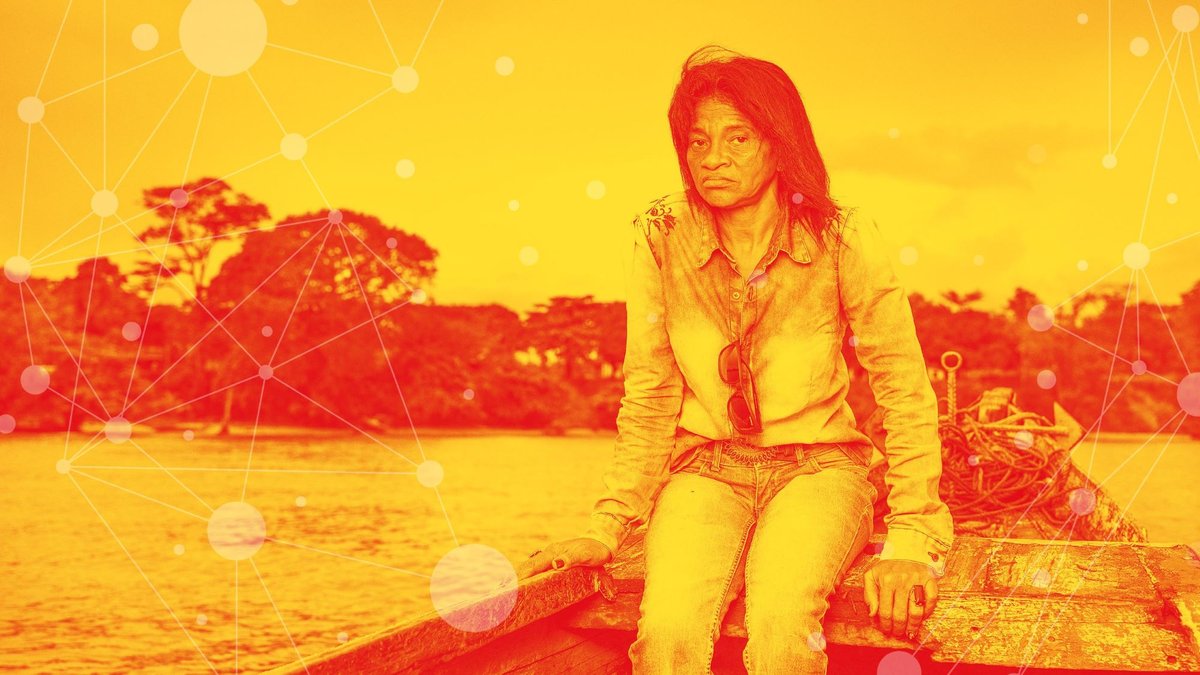Message from our CEO, Gillian Caldwell
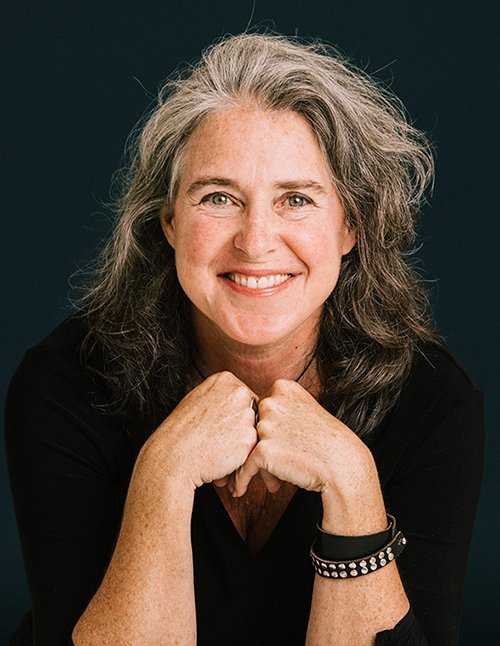
Global Witness CEO, Gillian Caldwell
In 2018, some of our longest-running campaigns bore fruit. Nowhere is this more apparent than the historic victory to bring transparency to UK Overseas Territories through public registers of company ownership.
This is the culmination of almost a decade of campaigning for reform in these notorious tax havens, which have long been destinations of choice for those laundering dirty money, including billions that may have been stolen from developing economies off the back of natural resource deals. We had other victories as well:
- In Afghanistan, a new mining law passed with the provisions we had argued for, including public registers of mine ownership, contract publication as a condition of validity, and the publication of mining production and payment data to reduce corruption.
- In the European Union, we secured support for a new law to require EU investors to ensure that they aren’t financing companies and projects anywhere in the world which contribute to climate change, deforestation, or human rights violations.
- Pending US legislation on Myanmar includes important language we advocated for incentivising reform to move the gemstone sector away from corrupt military control.
Our work continues in all these areas and more. In the years to come we will continue to push politicians and companies to deliver for people and the planet.
We couldn’t achieve what we do without the energy and commitment of our strategic and tenacious staff and partners around the world, who confront powerful and sometimes dangerous opponents daily.
Nor without our supporters, who drive us forward in our fight for a more just and sustainable world.
Foreword from our Founders – Charmian Gooch, Patrick Alley and Simon Taylor
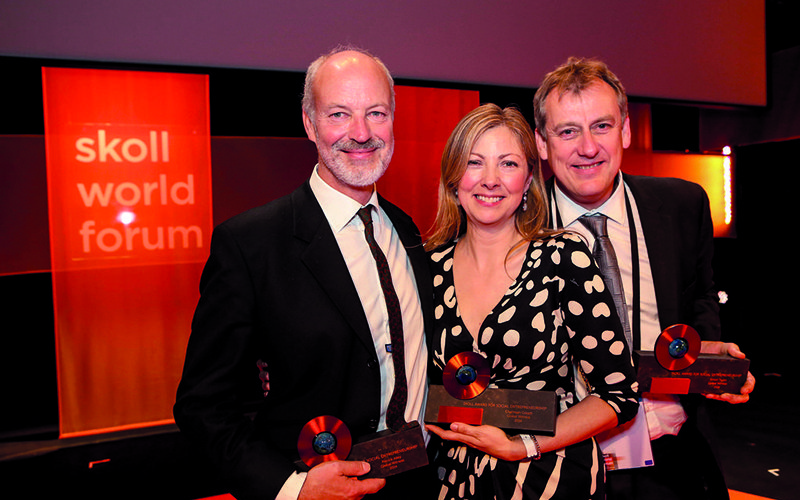
Global Witness founders Patrick Alley, Charmian Gooch and Simon Taylor.Skoll Foundation
As we approach 25 years since we set up Global Witness, it’s only natural to reflect on what has been achieved and how things have changed since we began.
When we first exposed the deadly multi-million dollar cross-border trade in Cambodian rainforest timber between the genocidal Khmer Rouge and Thai logging companies, we pioneered the concept that corruption, human rights and environmental abuses are often inextricably linked.
But we had no idea we would eventually play a major part in bringing the world’s biggest corporate corruption case against senior executives at major oil companies, work with partners to bring global attention to attacks on brave land and environmental defenders, or win a TED prize for our work to end anonymous companies.
The change Global Witness has catalysed with its investigations, its campaigning work and its advocacy is amazing.
Yet the challenges that made us start Global Witness remain as relevant today as ever. As we hurtle ever closer to the catastrophe of global climate breakdown, we need to be working harder and smarter to protect our planet from rapacious and destructive companies and negligent or corrupt governments.
Last year, for example, we:
- Used our undercover footage to support authorities to build cases against illegal timber traders in Peru;
- Exposed the illegality of logging operations in the Solomon Islands and Papua New Guinea through satellite imagery; and
- Uncovered Exxon’s complicity in Liberian oil sector corruption, which has led to an investigation into the actions of government officials
Corruption continues to be at the heart of so many of the issues we face in truly tackling the scale of the harm we’re doing to our environment.
Global Witness is more determined and more committed than ever to uncover this corruption, expose it to the world, and campaign to change the systems that enable it.
Global impacts
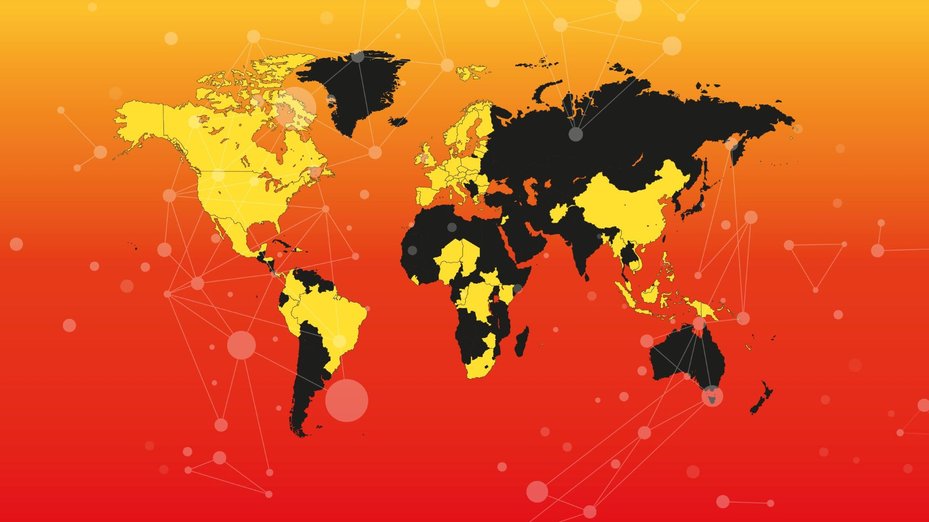
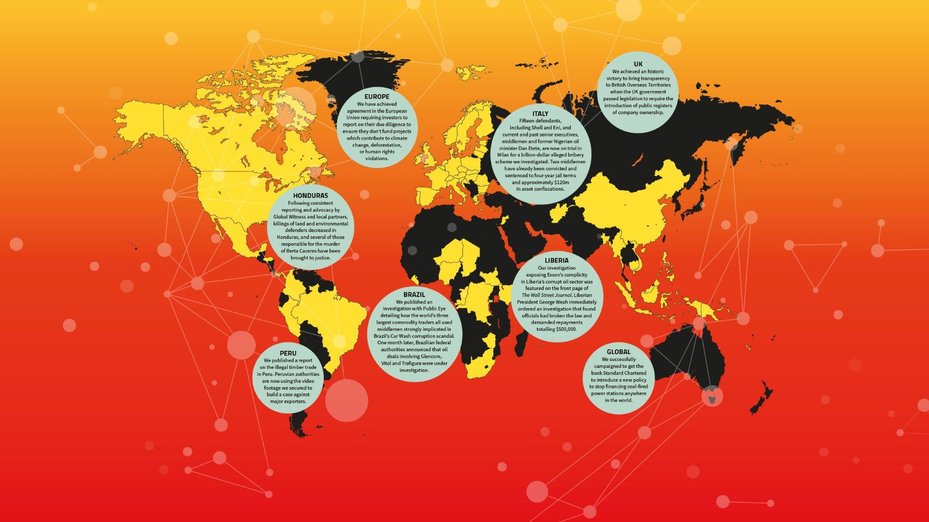
Important impacts in 2018
Our work touches countries right across the world. Here is a taster of what we achieved in 2018:
- Afghanistan – The new mining law includes publication of beneficial ownership as well as production and payment data.
- DRC – In response to our report, Comico said it would not drill in Salonga National Park, a UNESCO World Heritage Site. Now we’re pushing for a binding commitment to keep out altogether.
- Zimbabwe – Our investigation revealed Zimbabwe's spying agency and Army held secret stakes in diamond mining companies, demonstrating the ongoing link between diamonds and human rights abuse.
- South Sudan – Our report on state-owned oil company, Nilepet, led to them and 14 other companies being ‘listed’ by the US Securities and Exchange Commission (SEC), making it harder for them to trade with the US.
- UK – We achieved an historic victory to bring transparency to British Overseas Territories when the UK government passed legislation to require the introduction of public registers of company ownership.
- Global – Our longstanding work in the rubber industry led Bridgestone, Goodyear, and Continental to announce new rubber procurement policies requiring Free, Prior and Informed Consent (FPIC) in their supply chains, and commitments to avoid deforestation and land grabbing.
- UK – We released the first comprehensive analysis of the UK’s new open data beneficial ownership legislation, identifying loopholes for continued non-disclosure and weaknesses in the register. Companies House has now allocated more resources towards compliance and validation of data.
- Nigeria – Our economic analysis revealed the full impact of the 2011 oil deal struck by Shell and Eni on the Nigerian economy, highlighting that expected government revenue was reduced by nearly $6bn.
- Italy – Fifteen defendants, including Shell and Eni, and current and past senior executives, middlemen and former Nigerian oil minister Dan Etete, are now on trial in Milan for a billion-dollar alleged bribery scheme we investigated. Two middlemen have already been convicted and sentenced to four-year jail terms and approximately $120m in asset confiscations.
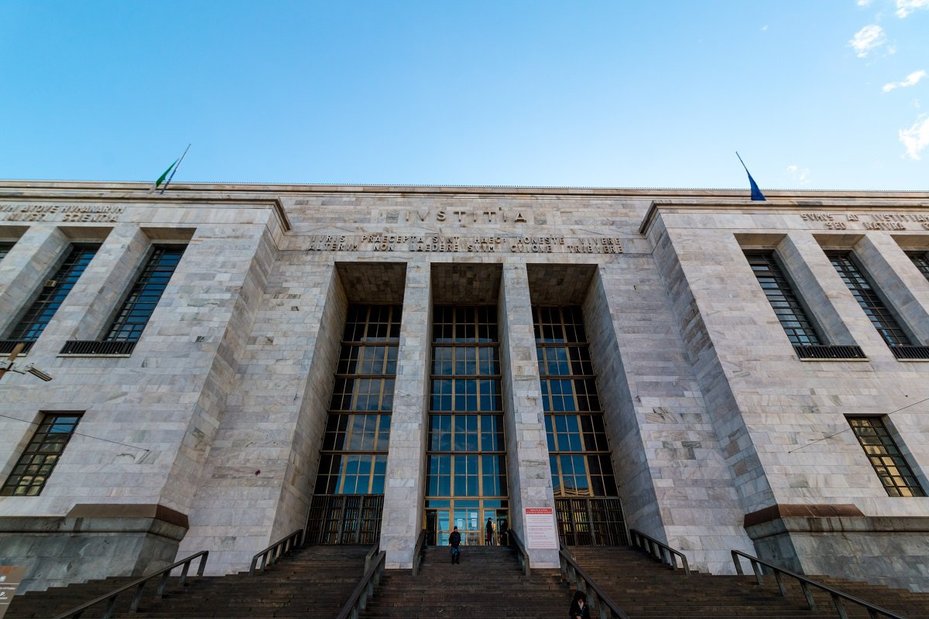
Shell and Eni and their executives are being held to account in Milan for alleged dodgy dealing in Nigeria
- Global – We launched Finding the Missing Millions, a ground-breaking data tool that guides users to follow the money to identify red flags for corruption in the extractives industry.
- Papua New Guinea – We released a report that revealed widespread illegality throughout PNG’s forestry industry and highlighted the risks of this trade to China’s global reputation and trade relations. In his first trip to PNG, the UN High Commissioner on Human Rights highlighted the fact that logging companies were utilising land without Free, Prior and Informed consent from communities.
- US – John H. Jankoff, one of the lawyers featured in our Undercover In New York investigation on CBS 60 Minutes, was censured by the Appellate Division of The Supreme Court of New York for violating the New York Rules of Professional Conduct by offering advice on how to move money in ways that would skirt existing anti-money laundering laws. Attorney Marc S. Koplik is subject to similar censure.
- China – Our investigation revealed that tropical timber across the Solomon Islands is being harvested on an unsustainable scale, and that much of the activity driving this environmental destruction is at high risk of being illegal. As a result, one of China’s largest forestry trade associations is now said to recognise PNG as a high-risk country and is aiming to look into sourcing from less risky countries.
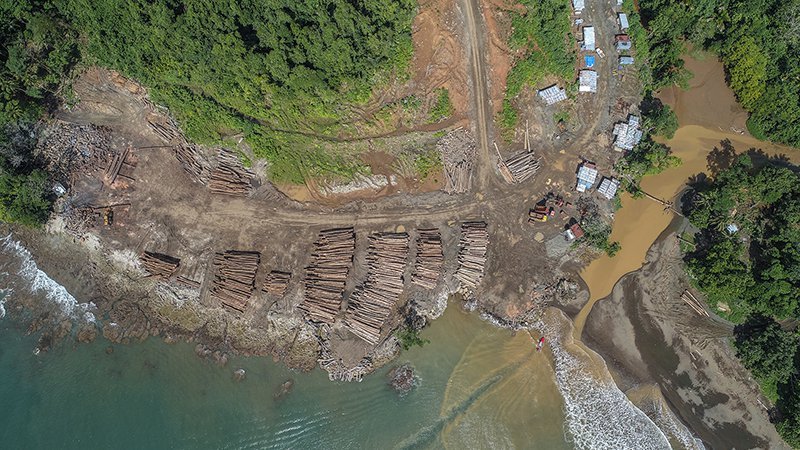
We exposed the illegality of logging operations in the Solomon Islands through satellite imagery. Alessio Bariviera / Reuters
- Niger – We helped release detained civil society activists in Niger (including allies on the Publish What You Pay coalition) as part of an international campaigning effort.
- Brazil – We published an investigation with Public Eye detailing how the world’s three largest commodity traders all used middlemen strongly implicated in Brazil’s Car Wash corruption scandal. One month later, Brazilian federal authorities announced that oil deals involving Glencore, Vitol and Trafigura were under investigation.
- Liberia – Our investigation exposing Exxon’s involvement in Liberia’s corrupt oil sector was featured on the front page of The Wall Street Journal. Liberian President George Weah immediately ordered an investigation that found officials had broken the law and demanded repayments totalling $500,000.
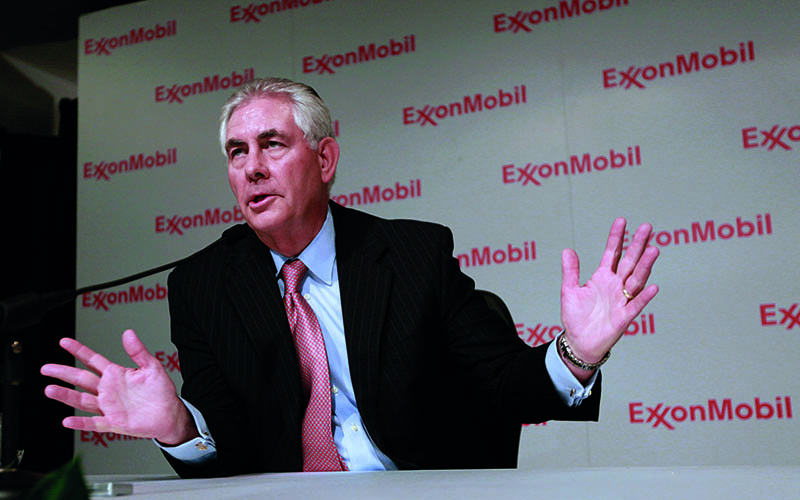
Our investigation exposing Exxon’s involvement in Liberia’s corrupt oil sector – while Rex Tillerson was Exxon CEO – was featured on the front page of The Wall Street Journal. Jason Janik / Bloomberg via Getty Images
- Honduras – Following consistent reporting and advocacy by Global Witness and local partners, killings of land and environmental defenders decreased in Honduras, and several of those responsible for the murder of Berta Caceres have been brought to justice.
- Peru – We published a report on the illegal timber trade in Peru. Peruvian authorities are now using the video footage we secured to build a case against major exporters.
- Europe – We have achieved agreement in the European Union requiring investors to report on their due diligence to ensure they don’t fund projects which contribute to climate change, deforestation, or human rights violations.
- Europe – We ensured EU institutions are looking into the corruption and security risks around golden visa schemes, which give potentially corrupt and criminal individuals free rein to move throughout the EU.
- Global – We successfully campaigned to get the bank Standard Chartered to introduce a new policy to stop financing coal-fired power stations anywhere in the world.
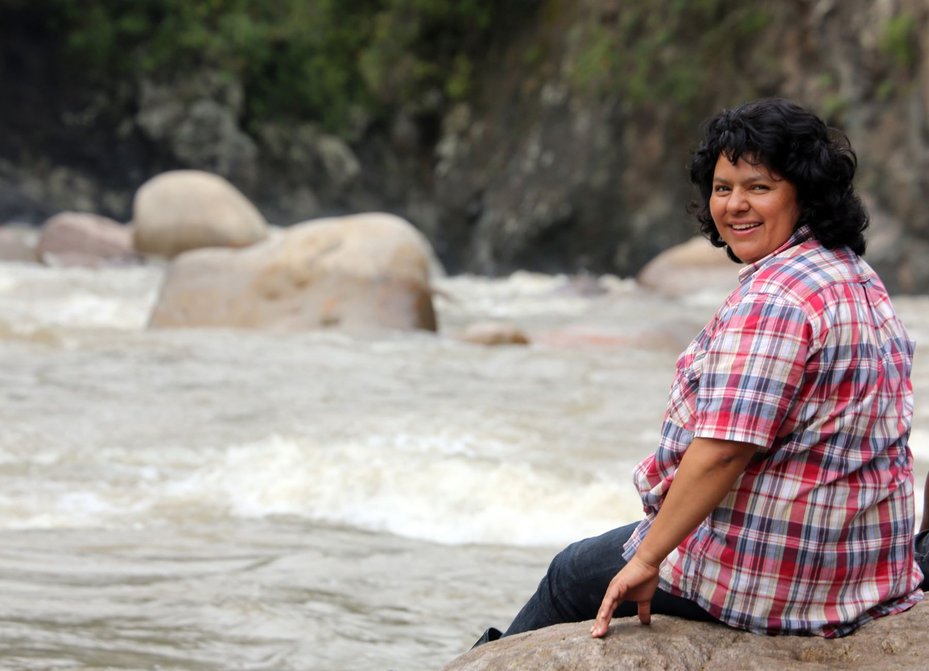
Following consistent reporting and advocacy by Global Witness and local partners, killings of land and environmental defenders decreased in Honduras, and several of those responsible for the murder of Berta Caceres have been brought to justice
Looking ahead
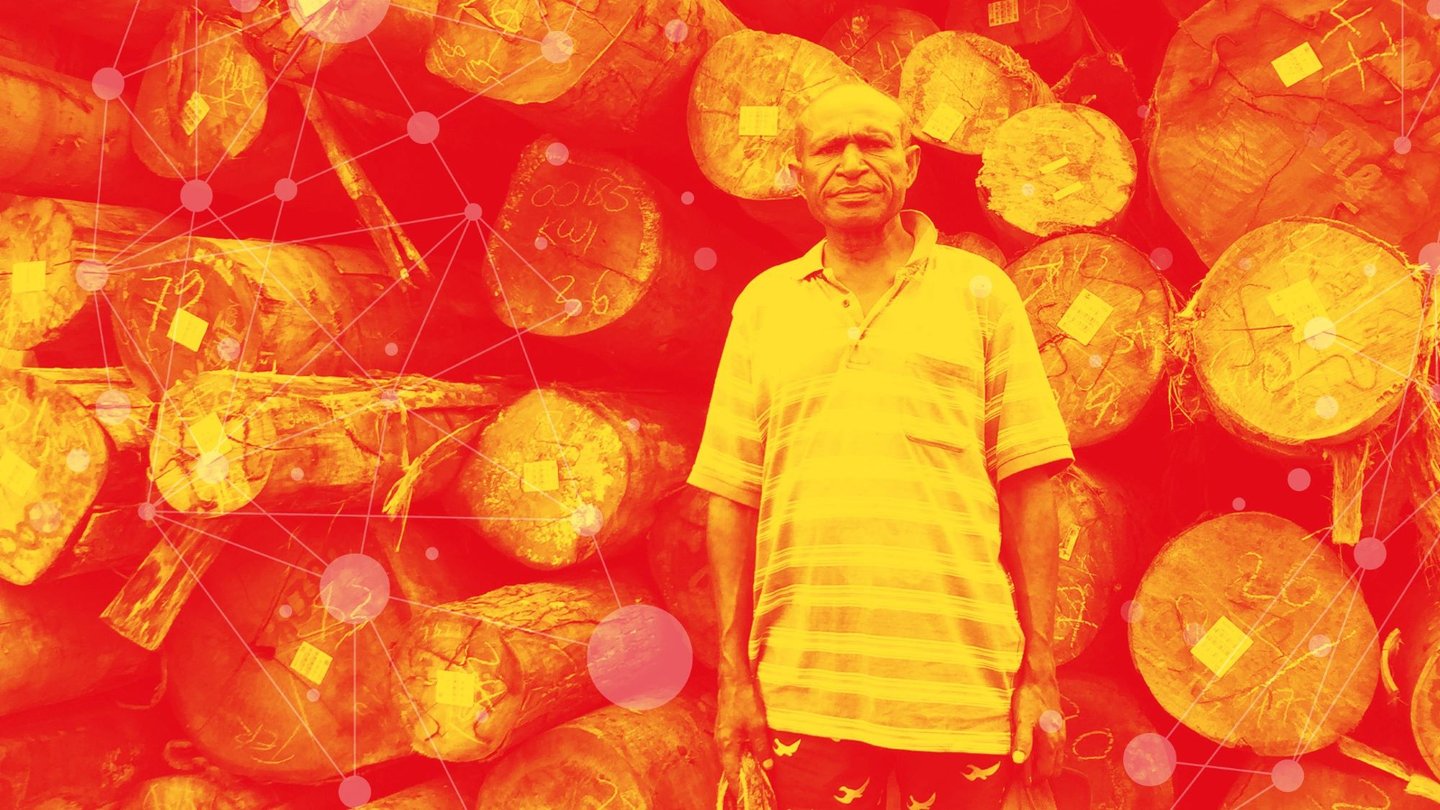

Papua New Guinean activist Augustine Mondu, a long-term partner of Global Witness, trains local communities to know their legal rights and protect their land and forests.Global Witness
It is now 25 years since Global Witness was first established. We take pride in the barriers we have created for the corrupt and criminal across the world, including extractive industry transparency standards, supply chain due diligence obligations, and laws to tackle the scourge of anonymous companies.
Whether it’s our work to hold senior Shell officials to account for alleged dodgy dealings in Nigeria, or our campaign to bring to justice those involved in the killing of land and environmental defenders, our highly tuned approach of finding the facts through forensic investigations, exposing the story through high-profile communications, and pushing to change the system through our longer-term campaigning and advocacy work, has stood the test of time.
As we look towards the future, however, we see the challenges we face becoming more complex and our opponents potentially becoming more powerful.
Devastating climate breakdown is hurtling towards us and, with the IPCC report setting a deadline of 11 years for substantive action to be taken, every moment of delay is pushing us ever closer to the brink of disaster.
Yet we have not seen any curbing of the behaviour of the rapacious fossil fuels industry, which carries on exploring potential new areas for extraction, even as they continue to empty existing wells.
They are aided, of course, by a global political system which is pitted in favour of powerful and wealthy companies. This has been turbo-charged in recent years with the continued rise of political forces which hide their own propensity towards corruption behind a veil of “anti-corruption” campaigning.
The political shocks of 2016-2018, with Trump winning in the US and Brexit passing in the UK referendum, the success of illiberal populists across Europe and, more recently, Bolsonaro winning in Brazil, paint a dark cloud over the global anti-corruption movement.
We are also witnessing a troubling decline in civic space, human rights and democratic freedoms, creating an environment where transparency, free speech and justice are under threat.
New technologies can facilitate this, providing the ability to coordinate the manipulation of political processes from outside a country, and to present the fake as authentic. These are the next frontiers in the fight against corruption.
As we look towards another 25 years of Global Witness, we are as determined as ever to confront these global challenges. That means stepping up our focus on the fossil fuel sector – and those who regulate, provide them with financing and do deals with them – to help prevent irreversible climate breakdown and hold them to account for the impact they have on the planet.
It means working harder than ever with our partners across the world to expose the companies, governments and individuals that threaten the rights of citizens, activists and campaigners who are fighting for sustainability, transparency and equality.
We can be proud of our legacy of securing systemic change that affects how countries and companies operate, and improves lives for millions.
It is the skills, expertise, networks and global partnerships developed over a quarter of a century that make us feel positive for the future – we are ready for the challenge, knowing that real and lasting change is possible.
Income and expenditure statement
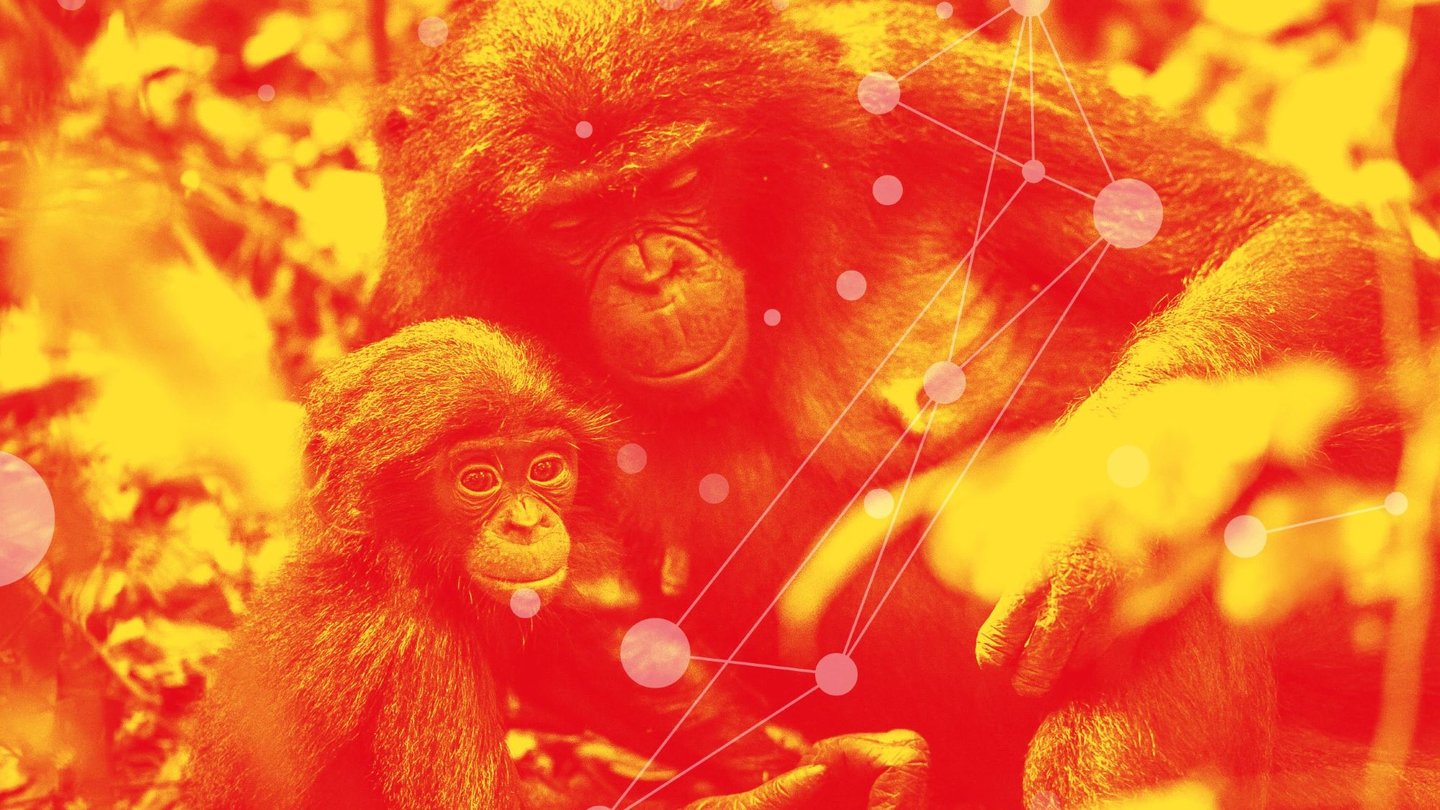

40% of the world’s endangered Bonobo population live in Salonga National Park, a UNESCO World Heritage Site and the largest tropical rainforest in Africa. Comico told us it would not drill in Salonga national park.Nature Picture Library / Alamy Stock Photo
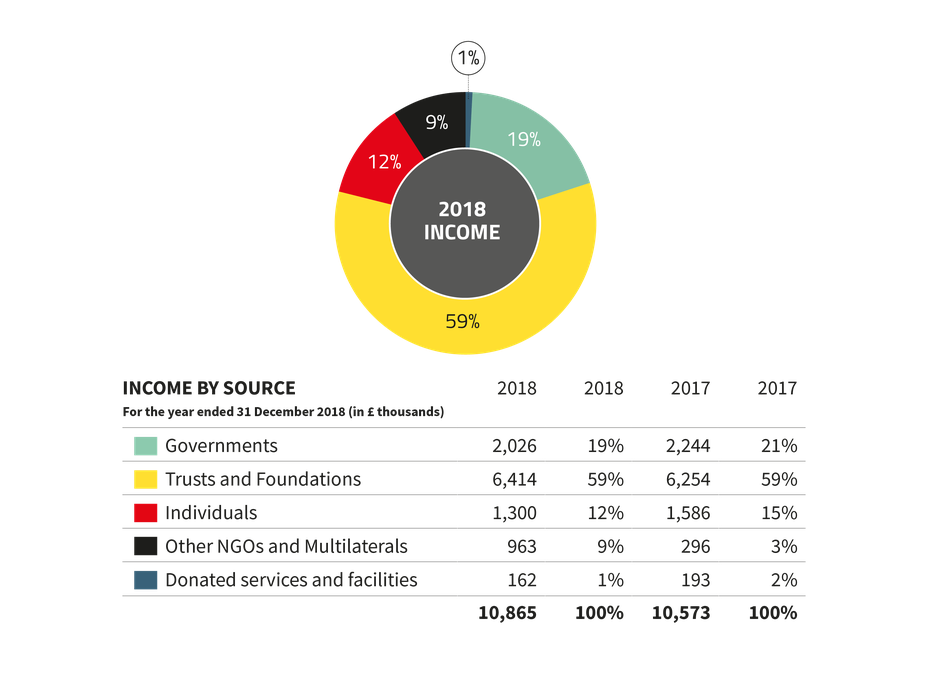
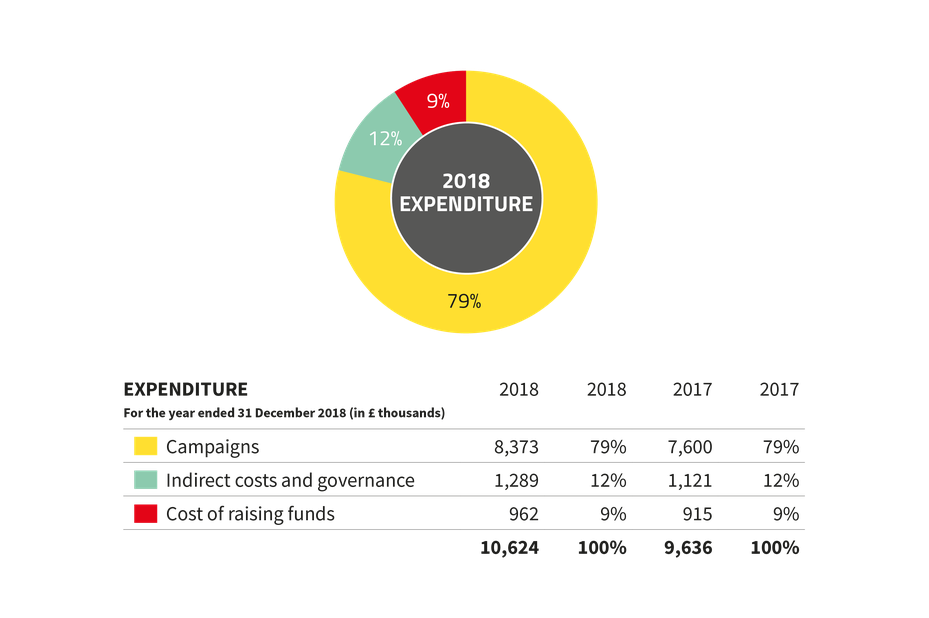
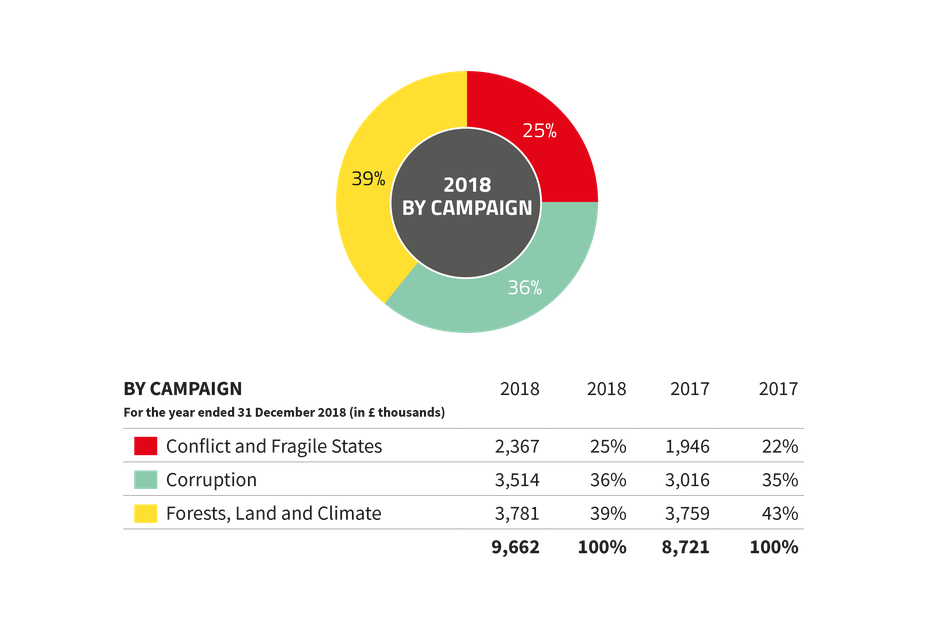
The above summarised financial statements are extracted from the full statutory directors’ annual report and financial statements which were approved by the directors and signed on their behalf on 15 April 2019.
The full financial statements, on which the auditors Crowe U.K. LLP gave an unqualified audit report on 15 April 2019, have been submitted to Companies House.
These summarised financial statements may not contain sufficient information to gain a complete understanding of the financial affairs of Global Witness.
See the full statutory directors’ report, financial statements and auditor’s report
Resource Library
Global Witness Annual Report 2018
Download Resource